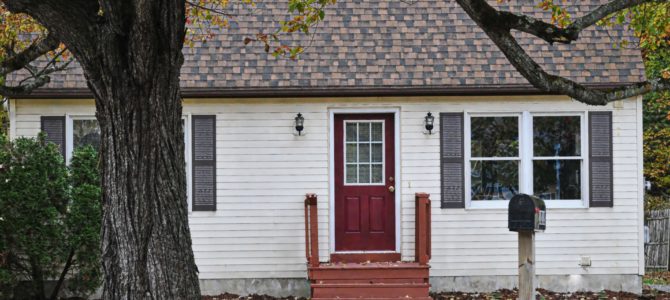
In the waning days of 2020, as COVID-19 cases in Massachusetts were summiting the highest peak of the pandemic, the Supreme Judicial Court (SJC) of Massachusetts decided that the First Amendment’s Assembly Clause does not protect private assembly by private citizens in “private homes.” According to the state’s high court, whether, when, and how the citizens of Massachusetts may gather in each other’s dens and bedrooms are all questions of “significant government interest” to the state’s governor, and are therefore within his regulatory power.
An appeal of this wrong decision, made in a case called Desrosiers v. Baker, is now among the 1,298 petitions that the U.S. Supreme Court will consider for review at its so-called Long Conference on Sept. 27. The odds that the Supreme Court will agree to hear the case are slim. The justices usually deny 99 percent of petitions for review, with only about a dozen cases making the cut.
The stakes, however, are high. As I argue in an amicus curiae brief I submitted in the U.S. Supreme Court in support of the Desrosiers v. Baker petitioners, the decision went beyond merely weakening assembly rights in Massachusetts. The SJC also took away one of the most essential property rights of its citizens—the right to invite or exclude others from their own private property as they please—and gave it to the state’s governor instead.
Restricting Private Assembly In Your Home
At issue in Desrosiers v. Baker is the legality of several COVID-19 lockdown orders issued throughout 2020 by Massachusetts Gov. Charlie Baker. The lockdown orders, which were some of the most draconian in the nation, generally banned all private assemblies that did not have a political or religious purpose after 9:30 p.m., no matter the size or location.
The orders imposed significantly stricter restrictions on assembly in “private residences” than on assembly in public settings. The orders encouraged “the public’s unselfish compliance,” and were enforceable variously by misdemeanor criminal penalties, civil fines, and court injunction. These penalties also applied to hosts who failed to cooperate with government requests for “lists of attendees at social gatherings.”
The Massachusetts lockdown orders even included a quasi-adultery ban, in effect at all hours, on assembly involving close physical contact by the un-cohabiting, instead of by the unmarried. Under the orders, “participants who [were] not members of the same household” had to keep six feet of distance from each other at all times. The orders warned that a “gathering shall violate this provision where, no matter the number of participants present, conditions or activities at the gathering are such that it is not reasonably possible for all participants to maintain this degree of separation.”
(This article does not contain any legal advice, but it seems that in flagrante interjections uttered toward a divinity, rather than toward the act itself, may have qualified a close, physical contact assembly for a religious purposes exemption.)
Private versus Public Property
To bless these unconstitutional bureaucratese absurdities as valid public health measures, the Massachusetts SJC’s decision in Desrosiers v. Baker dissolved the traditional distinction between the government’s power to regulate assembly on its own, government property; and the government’s power to regulate assembly on its citizens’ private property.
The distinction is common sense. Banning random members of the public from hanging out on the floor of a house of representatives, for example, “is no more an infringement of the rights of a member of the public than for the owner of a private house to forbid it in his house,” the Supreme Court said in 1897. Just like the private property owner, the government has the “right to absolutely exclude all” from its own property. Since then, the court clarified in 1939 that the government’s rights of ownership are not “as absolute as one’s ownership of his home” on government property that has “immemorially” been used for public assembly, like “streets and parks.”
The Massachusetts SJC’s decision in Desrosiers v. Baker, however, ignored this distinction between the government’s power to regulate assembly on public and private property. Thus, according to the SJC, for the governor of Massachusetts to forbid members of the public from enjoying assembly with each other in their own houses is no more an infringement of their rights than for the governor to forbid them from doing it on the floor of the State House.
This is simply untrue. It is the private homeowner, not the government, who holds the property right to forbid assembly in his own house. Under the U.S. Constitution, as it is interpreted by the U.S. Supreme Court: “Liberty protects the person from unwarranted government intrusions into a dwelling or other private places” to a far greater extent than it does the person while in a state house or another public place. Inside the “sacred precincts” of their private homes, people mundanely and unobjectionably assemble at times and in manners that would be highly frowned upon, and even illegal if attempted in a government building or in the middle of the street.
Fortunately, the lockdown orders in Massachusetts were short-term and have expired. Unfortunately, this will make it more likely that the SJC’s decision in Desrosiers v. Baker will evade U.S. Supreme Court review, leaving the SJC with the last word on assembly and property rights in Massachusetts — and the state’s governor with the power to suspend these rights in the future.
So goes the glory of freedom in the very state where the rights to assemble and to keep government agents out of the home were codified, in the face of the British crown’s tyrannical efforts to quash dissent and quarter soldiers in private residences — the state where the first shots of the American Revolution were fired, amid a smallpox epidemic far deadlier than COVID-19, by an assembly of people far braver than us.








